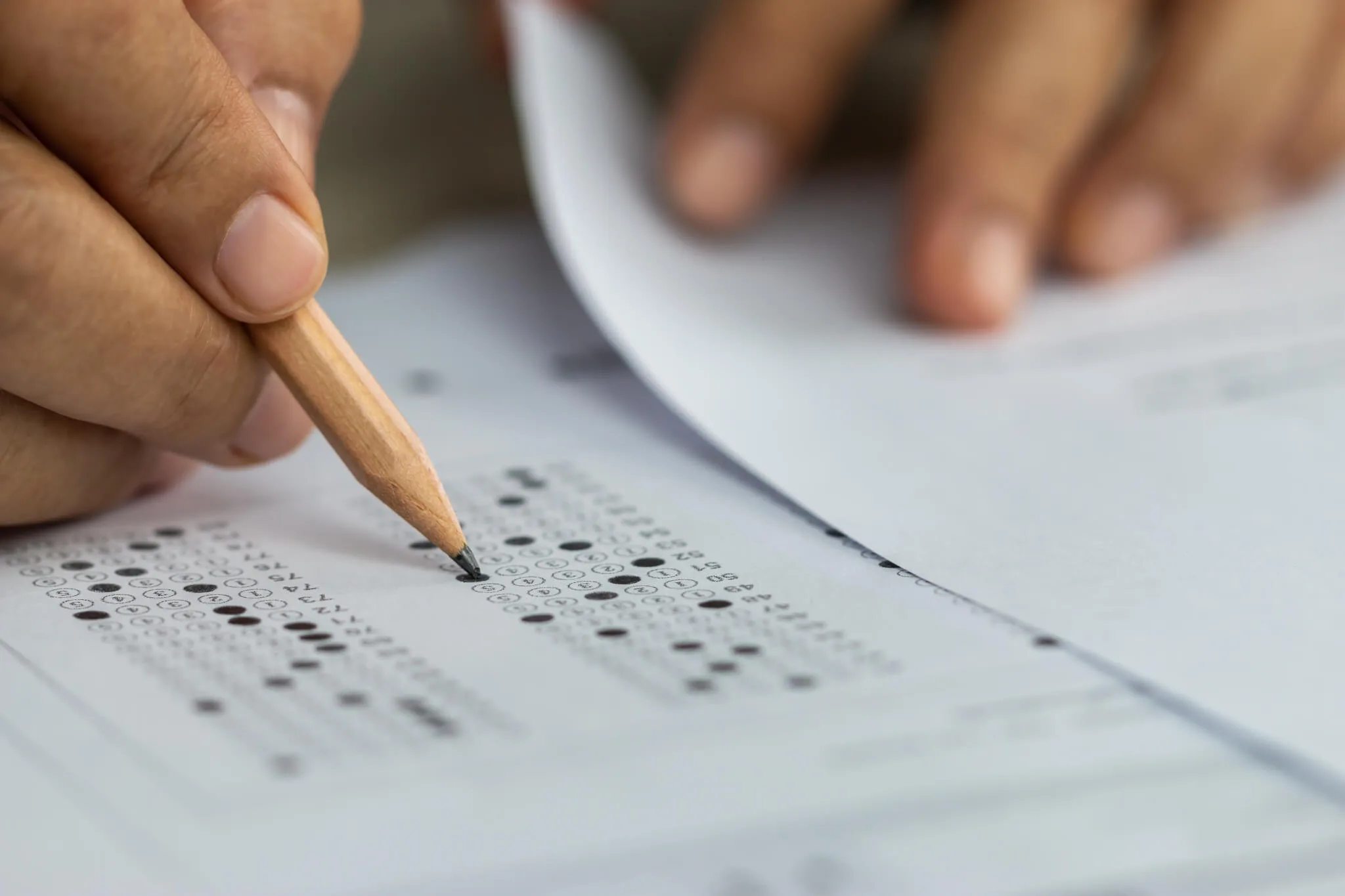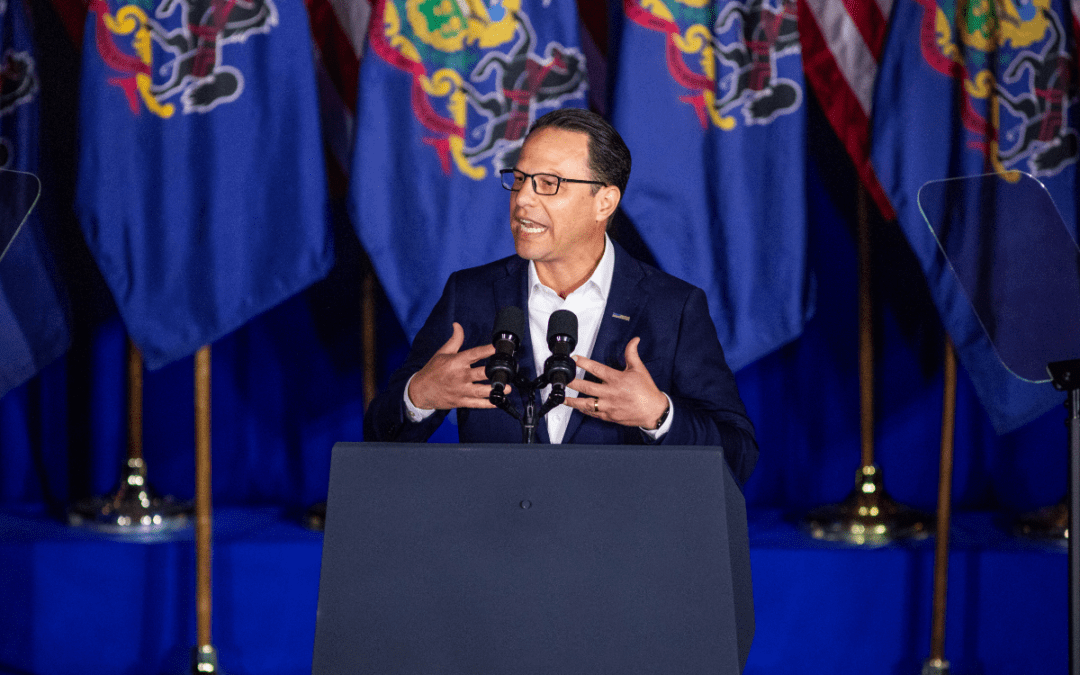
Educators are concerned that adding standardized tests onto students' responsibilities during the pandemic is too stressful.
While state officials believe standardized tests could be used as a means of measuring academic loss from the pandemic, educators think they could be detrimental to students’ mental health.
The past school year has been anything but normal. Yet, while the coronavirus pandemic has caused schools to cancel in-person classes, extracurricular activities, proms, and graduations, preparations for the annual Pennsylvania System of School Assessment and Keystone exams are still going strong.
School districts across the state are still required to administer the standardized tests this year, but have been given the option to delay the assessments until fall.
Educators across the country are against testing this year, saying it will only add more stress for everyone, especially students.
More than 540 education researchers and scholars recently wrote a letter to US Secretary of Education Miguel Cardona asking him to cancel the standardized testing this year, saying the tests will “exacerbate inequality” and “produce flawed data.”
In a previous letter to Cardona, 74 national and state educational organizations and thousands of individuals called for a waiver of the testing mandate, saying the pandemic has “inflicted enormous social, emotional, physical, and academic harm on America’s children,” and every moment in the classroom should be spent teaching.
Mental health experts agree.
Dr. Tyler Black, a child and adolescent psychiatrist specializing in pediatric mental health emergencies and suicide, said this school year shouldn’t be about standardized testing. It should be about academic forgiveness, he said.
“We need to be very forgiving of academic struggle,” Black said. “Kids need to know it’s okay to not do as well in school this year. It is not a sign of a weak mind.”
What Are the PSSAs and the Keystone Exams?
The federal government requires that states test students in grades 3-8 and once in high school, with exams that typically take place in the spring. Last spring, however, the US Department of Education issued waivers as the pandemic upended in-person education.
Pennsylvania students in grades 3 through 8 are tested in English/language arts and math. Students in grades 4 and 8 are also tested in science.
Eleventh grade students take the Keystone Exams, a standardized test that replaced the PSSAs for high school students. Students are tested in algebra, biology, and literature.
Testing usually takes about four days, lasting about four hours each day.
What Do Officials Do With the Test Scores?
The testing is done to determine whether students and schools are meeting standards set by the state government.
All schools are required to make Adequate Yearly Progress (AYP). AYP status is based on PSSA test results, testing participation rate (at least 95%), and attendance and/or graduation rates. For the last requirement, schools must have 90% average student attendance and an 80% graduation rate (or show improvement in both).
Tests are scored based on four levels: advanced, proficient, basic, and below basic. To “pass” the PSSAs, a student must obtain a proficient or advanced level score.
Results help determine a school’s rating on the state’s School Performance Profile and affect the amount of government funding the school receives.
Using the PSSAs as a Tool for Measuring Academic Loss
In a recent public hearing about education during the pandemic, state Department of Education Acting Secretary Noe Oretga said the pandemic has called for extraordinary measures and brought unprecedented change to Pennsylvania’s education system, such as new virtual and hybrid teaching settings.
Still, Ortega said, the annual assessments are valuable because they can be used to measure education loss during the pandemic. Schools will be able to gauge where the students are academically and what needs to be done to get them back on track.
For that reason, 52% of the 1,550 parents surveyed by the National PTA said they support end-of-the-year standardized testing. Approximately 25% were neutral or unsure.
PSSAs Would Be a Nightmare for Schools This Year
Federal and state education officials have not given schools any guidance on how to administer the tests while also adhering to social distancing protocols and other pandemic guidelines.
And trying to figure out the logistics would only add more frustration on top of the other significant challenges schools already face, educators said during a recent public hearing.
“Our kids do not need to be tested for us to know that their overall learning has suffered during online schooling,” said Rob Mitchell, a Spanish teacher at Pittsburgh Classical Academy in Allegheny County. “Testing will interrupt the learning taking place. Testing will wrongly shift our focus to trying to find out what kids lost rather than trying to provide what our kids need; a sense of stability, support, and continued instruction uninterrupted by arduous testing schedules.”
The testing mandate will only add additional stress at a time when school districts are grappling with mental health concerns, said Janell Logue-Belden, superintendent of Deer Lakes School District in Allegheny County.
“I think this year in particular is going to be extremely, extremely challenging for the special education population and the regular population just because they’re going to be judged on things that were beyond their control,” she said.
“It is a terrible decision to expect these students to take these exams,” said Samuel Lee, superintendent of the Bensalem Township School District in Bucks County. “I honestly don’t know what value will come out of it. It will only exacerbate the mental health issues these students are having.”
Academic Forgiveness Should Be the Lesson
Prior to the pandemic, school was the No. 1 cause of stress for kids, Black told The Keystone. As concern for students’ mental well-being increases, educators need to be sensitive to this fact and put less emphasis on things such as testing, he said.
“There should be less pressure on the academic end of things,” Black said. “It will relieve so much pressure on kids who are trying so hard to achieve top-shelf things during a pandemic.”
Schools can play a huge role in reducing pressure and alleviating some stress, Black said.
“Children often have this perception that they are the cause of the problem,” Black said. “When they are struggling, they internalize it and think they just need to try harder or do better. When you’re not enjoying things, that’s a problem. Kids are supposed to have fun. It’s one of the best things about being young.”
That element of fun is important, he said. There should be some degree of enjoyment in life every single day.
And that, Black said, could be the barometer used to measure how a student is coping both socially and academically this year.
Politics

What to know about Trump’s legal issues
Over the past year, former president Donald Trump has become the center of not one, not two, not three, but four criminal investigations, at both...

Shapiro aims to eliminate waiting list for services for intellectually disabled adults
HARRISBURG, Pa. (AP) — Gov. Josh Shapiro and his top human services official said Wednesday that the administration has a plan to end a waiting list...

Biden announces tariffs on Chinese Steel while visiting United Steelworkers members
“I'm president because of you guys. I really am and I'm proud. As was mentioned earlier, I'm proud to be the most pro-union president in American...
Local News

Conjoined twins from Berks County die at age 62
Conjoined twins Lori and George Schappell, who pursued separate careers, interests and relationships during lives that defied medical expectations,...

Railroad agrees to $600 million settlement for fiery Ohio derailment, residents fear it’s not enough
Norfolk Southern has agreed to pay $600 million in a class-action lawsuit settlement for a fiery train derailment in February 2023 in eastern Ohio,...






